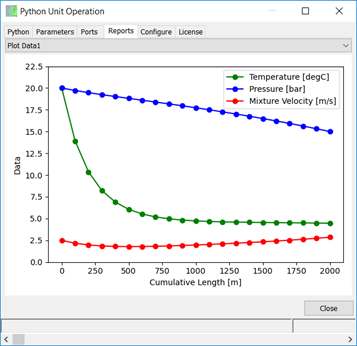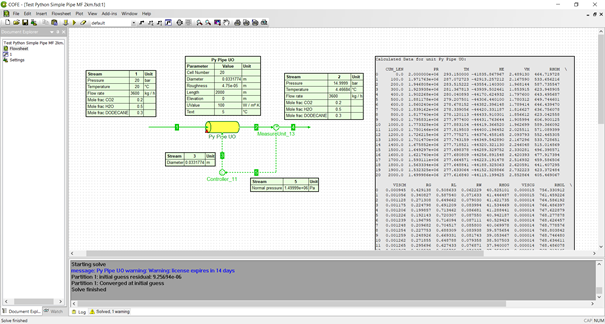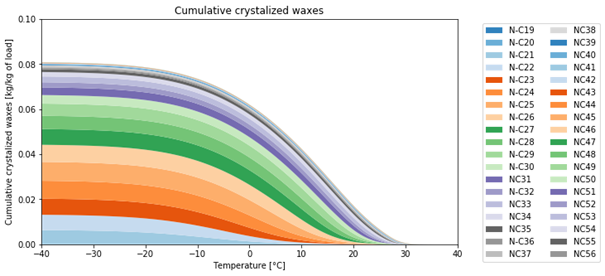
Martin shared his experience with the Python CAPE-OPEN Unit Operation (presented just before by Jasper van BATEN) and also with another application from AmsterCHEM, a Python Thermo Import.
After explaining why using CAPE-OPEN based tools makes good sense at IFPEN, Martin described first the use of the Python Thermo Import that he exercized with the Multiflash thermodynamic server from KBC. Martin showed how easily he was able to make use of Multiflash for predicting wax formation in pipes carrying oil, gas and water. As IFPEN has a long history of developing hydrodynamic models for multiphase flow, Martin then demonstrated how such models can easily be implemented in a Python CAPE-OPEN Unit Operation to model multiphase flow in pipes, considered as unit operations that can be plugged into process simulators such as COFE (AmsterCHEM) or PRO/II (AVEVA), for example to simulate a gas production network where multiple pipes are involved from each well head to manifolds and then to the surface facilities.
Summary
Recently, a Python CAPE-OPEN Unit Operation was released by AmsterCHEM. It allows to develop unit operations based on Python source codes, which can be run into a CAPE-OPEN Flowsheet Environment. Some python methods and classes provide also access to the Thermodynamic Property Packages of the simulation environment. IFPEN is currently prototyping modules using the Python CAPE-OPEN Unit Operation and integrates them within COFE CAPE-OPEN flowsheet environment in order to simulate well and pipeline networks (Figures 1 and 2).

Figure 2: Pressure, temperature and phase fraction profiles were plotted in the Python Unit Operation GUI and calculation results were written into a report accessible to the flowsheet environment
In addition, AmsterCHEM has also released a Python package (Python CAPE-OPEN Thermo Import) to access any CAPE-OPEN Thermo Package installed on the computer. This Python package facilitates the integration of PVT calculations into Python codes dealing with large sets of physical compounds, equations of state, flash types and physical property models. Thanks to this package, some extensive wax crystallisation calculations were performed using Multiflash software to assess deposit formation conditions (Figure 3). Some results are presented to illustrate the usefulness of the CAPE-OPEN Thermo Import package.


